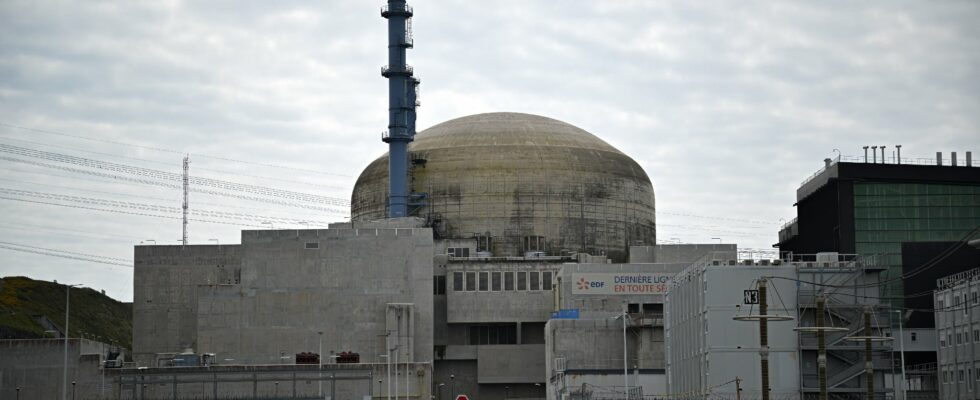The connection to the electricity network of the Flamanville EPR reactor is expected this Friday, EDF announced this Wednesday, December 18 in a message to the energy market, which will be served by this new generation nuclear reactor. “The first coupling to the network of the Flamanville 3 EPR reactor is planned for December 20, 2024,” said EDF, which specifies that the operation of the reactor “will be marked by different power levels, until the summer of 2025, which will result the testing phase.
“At the end of this test period, it is expected that the reactor will operate at 100% power until the first scheduled shutdown for maintenance and fuel reloading, called Complete Visit 1 (VC1),” added EDF in this message.
The start-up of the new generation nuclear reactor is 12 years behind the initial schedule due to numerous technical setbacks which caused the bill to explode, now estimated at 13.2 billion euros by EDF, or four times the initial estimate for 3.3 billion. To mark this event, EDF plans to hold a press conference on Friday at its Paris headquarters on Avenue de Wagram.
Gradual increase in power
Initiated on September 3, the start-up of the reactor was interrupted the next day due to an “automatic shutdown”, before resuming a few days later. This start-up marked the beginning of its gradual increase in power which will allow the reactor to be connected to the electricity network. The power level reached at the time of coupling is not yet known, according to EDF. This coupling to the network was initially planned before the end of summer 2024.
The EPR, a new generation pressurized water reactor, is the 4th of this type installed in the world, the 57th reactor in the French nuclear fleet, and the most powerful in the country (1,600 MW). Ultimately, it should supply around two million homes with electricity.
While Emmanuel Macron has decided to relaunch civil nuclear power in France, by ordering six EPR2 reactors (and eight additional ones as an option) from the energy company, the start-up of the Flamanville EPR, even if it was decided well before , takes on a highly symbolic dimension.
In the existing nuclear fleet, EDF has indeed turned the page on the stress corrosion crisis of 2022, which caused nuclear production to plummet due to checks or repairs to be carried out in numerous reactors.
